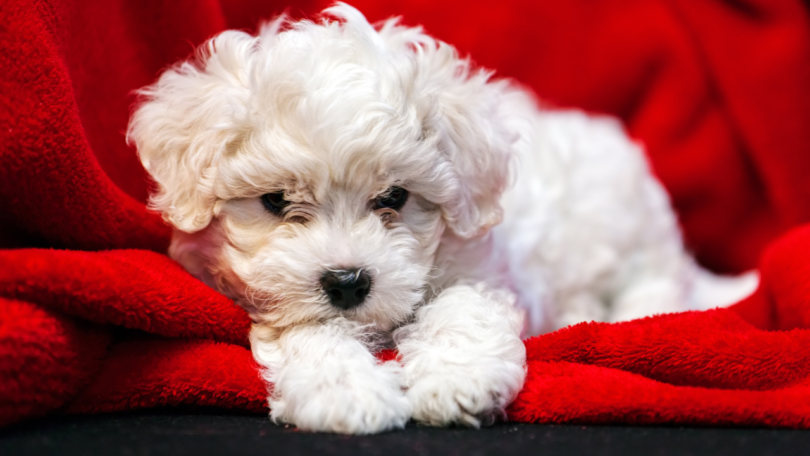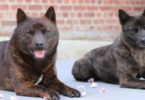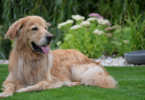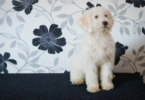Congratulations on welcoming a Bichon Frise into your apartment! These fluffy, cheerful dogs are known for their adaptability and make excellent companions for apartment dwellers. However, ensuring your Bichon Frise thrives in a smaller living space requires some thoughtful planning and dedication. This guide will walk you through everything you need to know to keep your Bichon happy, healthy, and content in your apartment.
Understanding Your Bichon Frise
Before diving into specific strategies, it's crucial to understand the unique characteristics of the Bichon Frise breed. This knowledge will help you tailor your approach to meet your dog's needs effectively.
Temperament
- Cheerful and playful
- Affectionate and people-oriented
- Intelligent and somewhat independent
- Generally good with children and other pets
Physical Characteristics
- Small size (typically 9-11 inches tall and 12-18 pounds)
- Fluffy white coat that requires regular grooming
- Relatively low-shedding, making them suitable for allergy sufferers
Exercise Needs
- Moderate energy levels
- Enjoy short bursts of activity followed by rest
- Require daily exercise, but not excessively
Mental Stimulation
- Intelligent breed that benefits from mental challenges
- Enjoy learning tricks and participating in games
Understanding these traits will help you create an environment that caters to your Bichon's natural tendencies and needs.
Creating a Bichon-Friendly Apartment Space
Even in a small apartment, you can create a comfortable and stimulating environment for your Bichon Frise. Here's how:
Designate a “Bichon Zone”
- Set up a cozy corner with a comfortable bed
- Include favorite toys and a water bowl
- This gives your Bichon a safe space to retreat when needed
Provide Vertical Space
- Consider adding a small dog-safe climbing structure or steps
- This can increase your Bichon's usable space without taking up much floor area
Use Space-Saving Solutions
- Opt for collapsible or wall-mounted dog bowls
- Choose a foldable dog crate that can be tucked away when not in use
- Use under-bed storage for dog supplies
Create Window Viewing Areas
- Place a small stool or cushion near a window
- This allows your Bichon to watch the outside world, providing mental stimulation
Ensure Safety
- Cover electrical outlets and secure loose wires
- Remove or secure any small objects that could be choking hazards
- Use baby gates to block off any areas that might be unsafe
By thoughtfully organizing your space, you can create a safe and enriching environment for your Bichon Frise, even in a small apartment.
Exercise Strategies for Apartment-Dwelling Bichons
While Bichon Frises don't require extensive exercise, regular activity is crucial for their physical and mental well-being. Here are some strategies to keep your Bichon fit in an apartment setting:
Indoor Exercise Ideas
- Hallway Fetch: Use a soft toy for a game of fetch in your hallway
- Stair Climbing: If you have access to stairs, supervised climbs can be great exercise
- Tug-of-War: Use a rope toy for a gentle game of tug
- Dance Party: Put on some music and dance with your Bichon
- Indoor Agility Course: Create a simple obstacle course using household items
Outdoor Exercise
- Aim for two 15-20 minute walks daily
- Visit local dog parks for off-leash play (ensure your Bichon is well-socialized)
- Explore different walking routes to provide mental stimulation
Exercise Equipment
- Consider a small treadmill designed for dogs
- Use puzzle toys that encourage movement
- Try a flirt pole for controlled chasing exercise
Remember, while exercise is important, be cautious not to overexert your Bichon, especially in hot weather. Always provide plenty of water and watch for signs of fatigue.
Mental Stimulation: Keeping Your Bichon's Mind Active
Bichon Frises are intelligent dogs that thrive on mental stimulation. In an apartment setting, keeping their minds engaged is just as important as physical exercise.
Puzzle Toys
- Invest in a variety of puzzle toys that dispense treats
- Rotate toys regularly to maintain interest
- Gradually increase difficulty as your Bichon masters each toy
Training Sessions
- Conduct short, daily training sessions
- Teach new tricks regularly
- Practice obedience commands in different areas of your apartment
Scent Games
- Hide treats around your apartment for your Bichon to find
- Use snuffle mats to encourage natural foraging behaviors
- Introduce scent work with essential oils (ensure they're dog-safe)
Interactive Play
- Play hide-and-seek with your Bichon
- Use a laser pointer for supervised play (ensure your Bichon has a physical toy to “catch” at the end)
- Teach your Bichon to help with simple household tasks, like fetching the mail
By providing ample mental stimulation, you can prevent boredom and associated behavioral issues, keeping your Bichon content in your apartment.
Grooming: A Bonding Experience in Small Spaces
Bichon Frises are known for their fluffy white coats, which require regular grooming. In an apartment, grooming can be a great bonding activity and a way to keep your space clean.
Daily Brushing
- Brush your Bichon's coat daily to prevent matting
- Use this time for bonding and checking for any skin issues
- Regular brushing reduces loose hair in your apartment
Bathing
- Bathe your Bichon every 3-4 weeks
- Use a handheld showerhead for easier bathing in small bathrooms
- Consider professional grooming every 6-8 weeks for thorough cleaning and trimming
Nail Care
- Trim nails every 2-3 weeks
- If you're not comfortable trimming, consider using a nail grinder
- Regular walks on concrete can help naturally file nails
Ear and Teeth Care
- Check and clean ears weekly to prevent infections
- Brush teeth daily or at least 3 times a week for optimal dental health
Remember, grooming is not just about keeping your Bichon looking good—it's an important part of their overall health and well-being.
Socialization: Ensuring a Well-Adjusted Apartment Dog
Proper socialization is crucial for any dog, but it's especially important for apartment-dwelling Bichons who may have limited exposure to the outside world.
In-Home Socialization
- Invite friends and family over regularly
- Expose your Bichon to different sounds, textures, and experiences within your apartment
- Use positive reinforcement to create good associations with new experiences
Outdoor Socialization
- Take your Bichon to dog-friendly stores and cafes
- Visit different parks and neighborhoods
- Arrange playdates with other well-socialized dogs
Elevator Etiquette
- Teach your Bichon to sit calmly in elevators
- Practice entering and exiting elevators politely
- Reward calm behavior around other residents and their pets
Noise Desensitization
- Gradually expose your Bichon to common apartment noises (vacuum cleaners, doorbells, etc.)
- Use treats and praise to create positive associations with these sounds
Remember, socialization is an ongoing process. Continue to expose your Bichon to new experiences throughout their life to maintain their social skills.
Nutrition and Feeding in Small Spaces
Proper nutrition is essential for your Bichon's health and happiness. Here's how to manage feeding in an apartment setting:
Choose the Right Food
- Opt for high-quality dog food appropriate for small breeds
- Consider your Bichon's age, activity level, and any health concerns
- Consult with your vet for personalized nutrition advice
Feeding Schedule
- Establish a consistent feeding schedule
- Typically, adult Bichons do well with two meals a day
- Avoid free-feeding to prevent overeating and maintain a clean apartment
Portion Control
- Use a measuring cup to ensure proper portions
- Adjust amounts based on your Bichon's activity level and weight
- Be mindful of treats – they should make up no more than 10% of daily calorie intake
Food Storage
- Use airtight containers to keep food fresh and pest-free
- Consider wall-mounted or under-cabinet storage solutions to save space
- Keep food and treats out of your Bichon's reach to prevent overindulgence
Water
- Provide constant access to fresh, clean water
- Consider a water fountain to encourage drinking and save space
By managing your Bichon's diet carefully, you can ensure they stay healthy and maintain an ideal weight, which is especially important in a smaller living space.
Managing Barking in an Apartment Setting
Bichon Frises are generally not excessive barkers, but in an apartment, even occasional barking can be a concern. Here's how to manage it:
Understand the Cause
- Identify what triggers your Bichon's barking (e.g., noises in the hallway, seeing other dogs outside)
- Address the root cause when possible
Training Techniques
- Teach the “Quiet” command using positive reinforcement
- Practice the “Look at Me” command to redirect attention
- Reward calm behavior in situations that usually trigger barking
Environmental Management
- Use white noise machines or soft music to mask outside noises
- Consider using window films to reduce visual stimuli that might cause barking
- Provide plenty of mental stimulation to prevent boredom-related barking
Exercise and Stimulation
- Ensure your Bichon gets enough physical exercise and mental stimulation
- A tired dog is less likely to bark excessively
Seek Professional Help
- If barking persists, consult a professional dog trainer or behaviorist
- They can provide personalized strategies for your specific situation
Remember, patience and consistency are key when addressing barking behaviors.
Creating a Routine: The Key to a Happy Apartment Bichon
Establishing a consistent daily routine can help your Bichon feel secure and well-adjusted in your apartment. Here's a sample schedule:
Morning
- Wake-up and potty break
- Breakfast
- Short walk or play session
- Quiet time while you prepare for work
Midday
- If possible, a quick visit home for a potty break and play session
- If not, consider a dog walker or pet sitter for longer work days
Evening
- Longer walk or play session
- Dinner
- Training or puzzle toy time
- Relaxation and cuddles
Bedtime
- Final potty break
- Settle into bed
Adjust this schedule to fit your lifestyle, but try to keep meal times, walks, and bedtime consistent. This routine will help your Bichon know what to expect each day, reducing anxiety and promoting good behavior.
Handling Separation Anxiety
Bichon Frises are known for their strong attachment to their owners, which can sometimes lead to separation anxiety. In an apartment setting, this can be particularly challenging. Here's how to address it:
Gradual Desensitization
- Start by leaving your Bichon alone for very short periods
- Gradually increase the duration of your absences
- Don't make a big fuss when leaving or returning home
Create a Safe Space
- Use a crate or designate a specific area as your Bichon's safe space
- Make this area comfortable and appealing with beds, toys, and treats
Provide Distractions
- Leave puzzle toys or long-lasting chews when you go out
- Consider leaving the TV or radio on for background noise
Exercise Before Departure
- A tired dog is more likely to rest while you're gone
- Take your Bichon for a walk or play session before you leave
Consider Professional Help
- If separation anxiety persists, consult a professional dog trainer or behaviorist
- They can provide tailored strategies for your specific situation
Remember, addressing separation anxiety takes time and patience. Be consistent in your approach and celebrate small improvements.











Leave a Comment